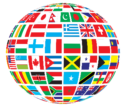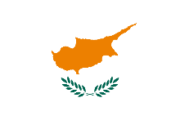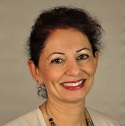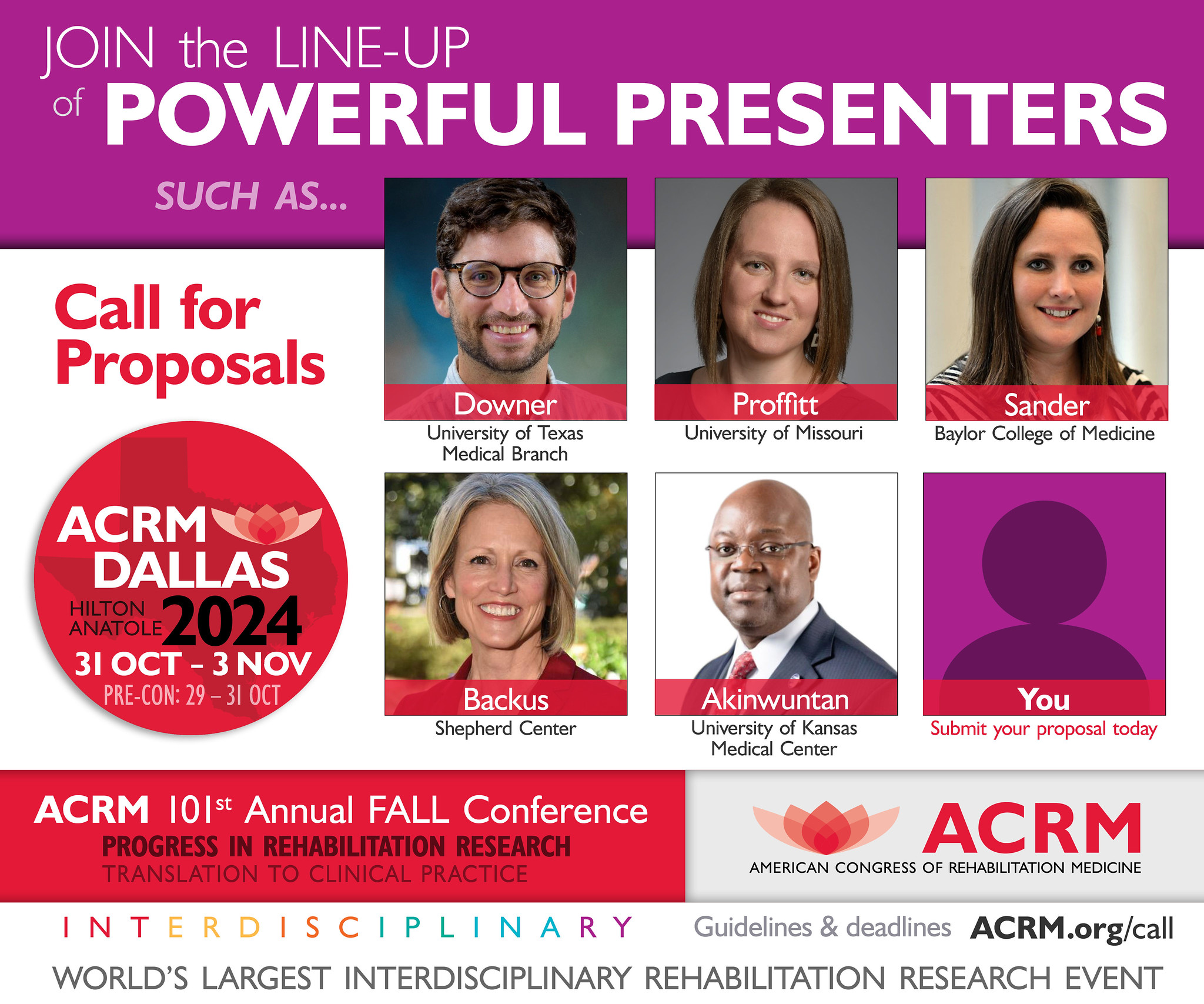 As a result of the COVID-19 pandemic, the field of rehabilitation medicine encountered innumerable new challenges. Providing quality care to patients in need during a worldwide pandemic while maintaining safety and without coming in close contact is a daunting task for all involved, to say the least. In addition, maintaining self-care in and out of work became a true obstacle for medical professionals. Every country in the world is enduring similar issues; each country in search of the most suitable course of action for the most efficacious outcome. We hope you will find light in the COVID-19 success stories shared below from our colleagues across the globe!
As a result of the COVID-19 pandemic, the field of rehabilitation medicine encountered innumerable new challenges. Providing quality care to patients in need during a worldwide pandemic while maintaining safety and without coming in close contact is a daunting task for all involved, to say the least. In addition, maintaining self-care in and out of work became a true obstacle for medical professionals. Every country in the world is enduring similar issues; each country in search of the most suitable course of action for the most efficacious outcome. We hope you will find light in the COVID-19 success stories shared below from our colleagues across the globe!
SUCCESS STORY #1
By Dr. Juan Carlos Arango Lasprilla
Due to the COVID-19 pandemic, it has been difficult to meet-and-greet in-person and hold hands in solidarity; however, neuropsychologists and rehabilitation professionals primarily from Latin America, Spain, and Portugal have found numerous ways to remain connected. During this time of crisis, ACRM ING-Service Delivery Task Force Co-chair Dr. Juan Carlos Arango Lasprilla, planned a series of uplifting meetings, webinars, networking, and social events for Spanish-speaking neuropsychologists and rehabilitation professionals to continue moving the field forward, learning, networking, and coping together. An overview of these events is provided in more detail below.
Free Webinars
The Neuropsychology Learning portal has offered free Spanish-language webinars every Tuesday and Thursday, since March 2020. An archive of approximately 30 free webinars are available on the website. Some of these recordings have been viewed by over 2,500 people. Invited speakers came from many different Ibero-American countries. The webinars cover a range of topics, including cultural neuropsychology, neuropsychiatric sequelae of traumatic brain injury, teleneuropsychology in Spanish-speaking countries, and the role of bilingualism in neuropsychological evaluations.
NeuroCafe
With in-person conferences, workshops, and other physical gatherings on hold, it is important to find ways to continue fostering connections and networking with others to encourage professional development, as well as self-care. A two-hour “Neurocafe” was held via Zoom where 230 neuropsychologists from 23 Spanish-speaking countries gathered to meet-and-greet and enjoy a virtual coffee.
NeuroMentoring
A virtual NeuroMentoring panel was organized for Spanish-speaking students interested in studying abroad. A panel of Spanish-speaking and Portuguese neuropsychologists and rehabilitation professionals who emigrated from their country of origin to pursue academic and professional endeavors abroad (e.g., United States, France, England, Canada, Spain) shared their experiences. The panel shared practical advice regarding international student visa processes, how to seek and obtain scholarships, and how to apply to undergraduate and graduate programs in psychology/neuropsychology abroad. Approximately 260 individuals from 24 countries attended this successful mentoring event.
Neuro-Dance
Maintaining a sense of connectedness and togetherness during a crisis is key to building resiliency and hope. This is why 50 neuropsychologists from 20 Ibero-American countries came together virtually via two traditional Latin American dances – the Cumbia and Salsa. Participants filmed themselves dancing to each song individually. The individual videos were then combined to produce images of all participants dancing one-at-a-time, but moving continuously in time to the music. Dancing of any kind, of course boosts brain health, lowers stress, improves mood, and fosters social bonding! Both of these videos also illustrate the power of interconnectedness and camaraderie during a time of social restriction and isolation.
The videos have been seen by more than 3,000 people. You can view them at:
Cumbia: http://gopro.com/v/8vMBO8pe0M0z4
Salsa: http://gopro.com/v/dMz8V0yMPBmrR
Examining the Impact of Social Restrictions / Quarantine on Physical & Mental Health
Dr. Arango-Lasprilla and colleagues from Europe and the United States are conducting a study to examine the effects of social restrictions / quarantine on physical and mental health. Information is being collected via online surveys that have been translated into six different languages. So far, data is available from approximately 13,000 people around the world.
Neuro-Party
In another social event organized to virtually connect neuropsychologists and rehabilitation professionals from many countries through music, 15 invited artists and neuropsychologists and rehabilitation professionals offered up their talents via Zoom. These individuals sang typical songs from their countries (e.g., Italy, Greece, US, Spain, Mexico, Colombia, and Brazil), and even opera! Others played musical instruments like the electric guitar and piano. Five hundred (500) participants from 24 countries attended the event. After the show, participants engaged in virtual karaoke with dancing until wee hours of the morning. Needless to say, a good time was had by all.
These educational, research, cultural, and social activities have helped to bridge the isolation resulting from social and travel restrictions. They have contributed to a sense of well-being and connectedness among Spanish-speaking neuropsychologists and others, and served to strengthen and expand existing networks during these challenging times.
SUCCESS STORY #2
By Bossuyt Fransiska, Marnix Crevits (member of OVC) 1958
 Dominiek Savio is one of the biggest institutes in Belgium for persons with physical disabilities. The institute, grounded in 1958 with currently over 500 children and adults, believes in the capacity of persons with disabilities and strives to improve their quality of life. Together with the persons themselves, they search for sustainable perspectives to learn, live, work, and relax by supporting with and/or providing health care, rehabilitation, education, housing, work, sports, and leisure time activities. Given the fragile risk group, with over 80% suffering from chronic airways diseases, Dominiek Savio could not permit COVID-19 to enter, and reacted in a fast and rigid manner to minimize any risk of an outbreak within the institute. Their success in doing so has been demonstrated, as so far, no one within the institute has tested positive with COVID-19.
Dominiek Savio is one of the biggest institutes in Belgium for persons with physical disabilities. The institute, grounded in 1958 with currently over 500 children and adults, believes in the capacity of persons with disabilities and strives to improve their quality of life. Together with the persons themselves, they search for sustainable perspectives to learn, live, work, and relax by supporting with and/or providing health care, rehabilitation, education, housing, work, sports, and leisure time activities. Given the fragile risk group, with over 80% suffering from chronic airways diseases, Dominiek Savio could not permit COVID-19 to enter, and reacted in a fast and rigid manner to minimize any risk of an outbreak within the institute. Their success in doing so has been demonstrated, as so far, no one within the institute has tested positive with COVID-19.
While no one can be prepared for such a pandemic and everyone needs their portion of luck, these are the lessons learned from Dominik Savio:
- Create a small group of persons that has the expertise and mandate to implement measures.
- Have your own medical team (medical doctors, nurses, etc.) within the organization.
- Fast, strict, and accurate lock-down.
- Continuously repeat basic rules: disinfect hands regularly and wear face masks, gloves, and aprons if distance cannot be warranted.
- Keep a stock of protective equipment for emergencies.
- Provide initiatives that allow residents to see family and friends in a safe environment outside the institute without placing anyone at risk.
- As soon as someone within the institute has been tested positive and/or has been in contact with someone who tested positive, fully isolate all persons who have been in close contact and test them for COVID-19 if possible.
- Solve problems within your organization rather than relying on others from outside the organization – e.g., redirect teachers who don’t have to work because of the lock down towards other positions where more help is needed.
- Avoid loosening restrictions until proven safe
- Value solidarity and commitment within the organization and share your mission.
The challenges that Dominik Savio faced during this pandemic could be tackled within the organization itself without assistance from outside. For example, they have their own medical team including 2 medical doctors, 28 nurses, and 5 health care providers. Because of the fast-shrinking supply of face masks, they produced their own masks in the workshop where persons with disabilities can work in a safe environment. Furthermore, because the government had put all schools in lock down, they could redirect their teachers to other positions where more help was needed. This extra workforce also allowed to strictly place every employee that had been in contact with a person possibly infected with COVID-19 in quarantine.
Initiatives as the Chatbus, (a bus that is separated in two parts by a plastic wall that could drive to the pavilion of the resident who could enter the bus with a wheelchair lift on one side, and his/her visitor on the other side) allowed contact with persons from outside the institute, without bringing them physically inside. Furthermore, the organization placed tents to allow visitors to see their family and friends. Until the end of August 2020, all buildings remained excluded for external visitors.
The years of investment in solidarity and commitment amongst employees to improve the quality of life of persons with a disability proved its impact. For example, the Jumborun – a yearly event with over 150 bikers that carry persons with disabilities and presents a symbol of freedom and movement – is a way in how Dominiek Savio shares its mission. To this effect, employees helped to get the protection equipment they needed by asking local pharmacies and retired employees to volunteer their help when possible. This demonstrates the value of the passion of those who work with Dominiek Savio and all strive for the same cause.
SUCCESS STORY #3
 By Dr. Eva Pettemeridou
By Dr. Eva Pettemeridou
 Overall Medical Approach to the Pandemic
Overall Medical Approach to the Pandemic
Cyprus holds one of the few success stories regarding quick, effective management of the COVID-19 Pandemic. Specifically, the Cypriot government promptly enforced appropriate measures required to minimize the spread of the pandemic including a two-month lock down during Spring of 2020. Fortunately, these strategies slowed and eventually halted the spread of COVID-19 in our country.
Mental Health Services
Cypriot governmental institutions, including the mental health services of the University of Cyprus, the Ministry of Health Mental Health Services and the Cyprus Psychological Association alerted all mental health professionals in dedicating their time in providing free hotline services to front-line professionals, (e.g. nurses and doctors), in order to relieve them from the stress of serving the public during the pandemic while being kept in quarantine, away from their families. Furthermore, mental health care providers, such as clinical psychologists in the private sector effortlessly transitioned to telehealth allowing their clients to receive uninterrupted mental health care services. Finally, researchers dedicated their efforts in undertaking initiatives to educate the public regarding the effects of COVID-19 on mental health.
Research Examining the Effect of the Pandemic on Anxiety and Depression and Cypriot’s Compliance with Precautionary Measures
Ioulia Solomou, MSc, and Dr. Fofi Constantinidou from Cyprus conducted a study to identify and record the psychosocial effects of the COVID-19 pandemic in the general population and to detect potential risk and protective factors that predict changes in one’s mental health. Furthermore, they aimed to examine Cypriots’ compliance with all precautionary measures undertaken to halt the spread of the virus. This work has already been published in the International Journal of Environmental Research and Public Health.
SUCCESS STORY #4
By Tiffany T. Lin, OTD, OTR/L
 A disruption of a normal daily routine is one of the impacts from the COVID-19 pandemic. A study found that loss of routine may result in boredom and frustration, which may affect one’s mental well-being (Brook et al., 2020). Those who experiences mental health challenges are even more affected by the COVID-19 pandemic.
A disruption of a normal daily routine is one of the impacts from the COVID-19 pandemic. A study found that loss of routine may result in boredom and frustration, which may affect one’s mental well-being (Brook et al., 2020). Those who experiences mental health challenges are even more affected by the COVID-19 pandemic.
Occupational therapists are experts in supporting clients to re-establish routines to increase their participations in daily activities. Two occupational therapists from an urban city saw a unique role that OT can contribute during this pandemic. They designed and implemented a six-week routine management telehealth group with a focus on social emotional well-being for people with mental health challenges. The group was taken placed in a community living facility that supports people with substance use disorders with other co-occurred mental health disorders to reintegrate back to the community. The therapists used Model of Human Occupation as a theoretical framework to guide the content of the group. Each session of the group focused on one practical skill to support routine building skill. Occupational Questionnaire (OQ) was also utilized as a tool to help the members to establish routines and reflect on their current routines. Following each weekly group session, each member had a 30 minute one on one session with the occupational therapists to reflect on their process and address any other personal challenges they encounter during week. The feedback from the group was very positive. This pilot routine management telehealth group emphasizes the needs and benefits to expand OT’s role during the COVID-19 pandemic.
SUCCESS STORY #5

Telehealth in Speech Language Pathology – European Success
By Dr Fofi Constantinidou
 SLP professionals are key rehabilitation personnel in medical/health care systems and care homes. The pandemic created significant challenges in providing direct care services for patients who required SLP services and were immunocompromised. Furthermore, certain procedures such as aerosol generating procedures, were halted during the climax of the pandemic to minimize risk of transmission. These challenges, created limitations for the care of patients with and without COVID-19. Additionally, the pandemic, created a new diagnostic category of patients with respiratory disease. Patients with smell and taste disorders, respiratory and cognitive disorders, require SLP services.
SLP professionals are key rehabilitation personnel in medical/health care systems and care homes. The pandemic created significant challenges in providing direct care services for patients who required SLP services and were immunocompromised. Furthermore, certain procedures such as aerosol generating procedures, were halted during the climax of the pandemic to minimize risk of transmission. These challenges, created limitations for the care of patients with and without COVID-19. Additionally, the pandemic, created a new diagnostic category of patients with respiratory disease. Patients with smell and taste disorders, respiratory and cognitive disorders, require SLP services.
In addition, the pandemic and lock down measures created an exacerbation of clinical symptoms of dementia. Contributing factors include increased anxiety and depression associated with loneliness due to restriction of visitations in nursing homes, as well reduction in communication because the use of protective equipment limited the use of visual cues for those with hearing loss and also distorted sound transmissions. Older adults with hearing loss are overrepresented in nursing homes.
In response to managing the pandemic and implementing physical distancing, telehealth was implemented in several settings across the world. Challenges faced by clinicians and providers include logistical and technical issues but also regulatory issues. A big achievement in the US was the approval of telehealth as a viable service delivery option by CMS. In Europe, several countries have yet to establish laws that regulate tele-practice; in some countries this is prohibited. The premier European SLP association, CPLOL in collaboration with the 29 member associations, issued a statement on the importance of telehealth in service provision. The statement as been endorsed by the Directorate General of Health, Food and Drug in the European Union. This is a major achievement which lead the way to changes in laws and regulations in some EU countries and has the potential to affect service delivery across health professions.











